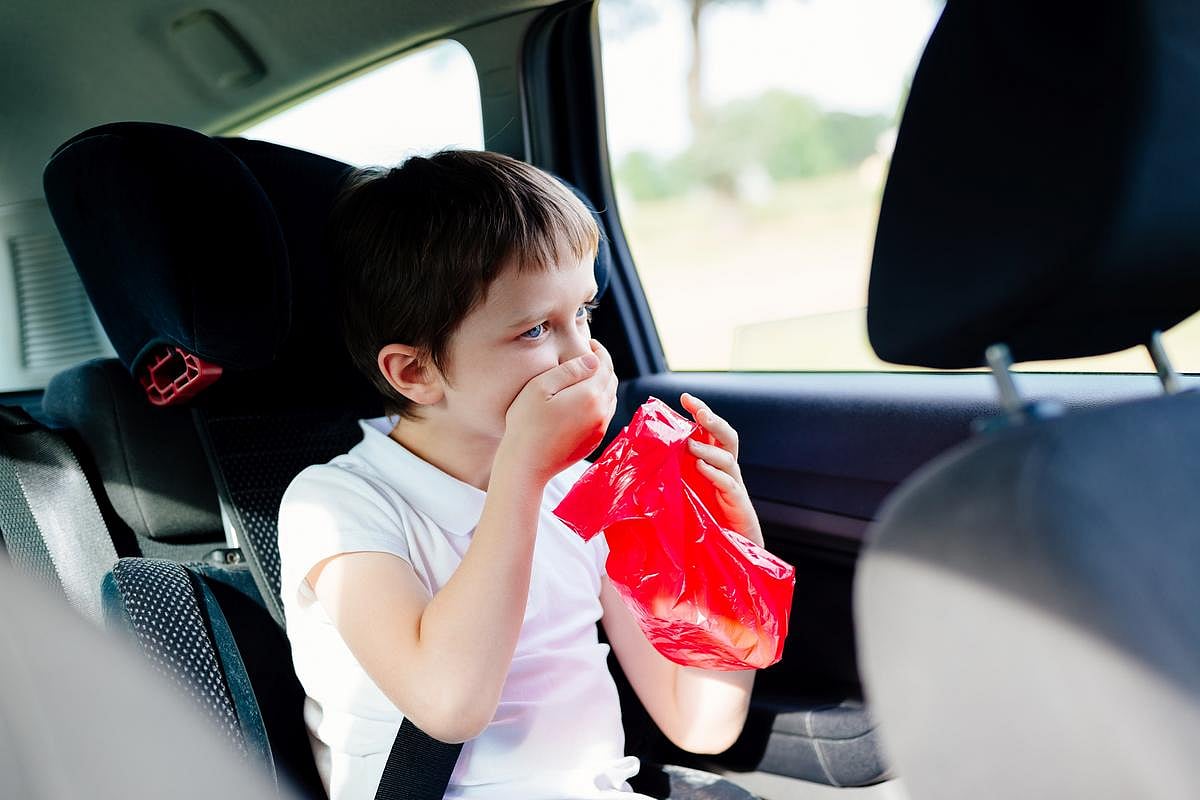Get Healthy!

- Posted September 5, 2025
Music Soothes Savage Motion Sickness, Experiment Shows
Carsick or seasick? Reach for some feel-good music, a new study suggests.
Music like yacht rock or peppy pop could be the key to helping relieve nausea from motion sickness, researchers reported Sept. 3 in the journal Frontiers in Human Neuroscience.
People who listen to soft and joyful music tend to recover more quickly from motion sickness, researchers found.
On the other hand, sad music might do less than nothing, results show.
“Based on our conclusions, individuals experiencing motion sickness symptoms during travel can listen to cheerful or gentle music to achieve relief,” senior researcher Qizong Yue of Southwest University in China said in a news release.
For the study, researchers used a specially calibrated driving simulator to induce car sickness in 30 participants, who all wore EEG caps to track their brain waves.
The simulator combined the Forza Horizon 5 video game with a machine that mimics the herky-jerky motion of road travel.
The participants were divided into six groups. Four groups listened to one specific type of music – joyful, soft, passionate or sad – for a minute after they developed car sickness.
The fifth group listened to no music, and the sixth group stopped driving on the verge of nausea to serve as an experimental control.
Joyful and soft music alleviated car sickness the best, both reducing symptoms by about 57%, results show. Passionate music reduced symptoms by about 48%.
By comparison, the control group had a 43% reduction in their symptoms after a minute’s rest, while the folks who listened to sad music only had a reduction of 40%.
People’s symptom levels then were linked to EEG data showing changes in brain activity in the occipital lobe during car sickness, researchers said. This brain region processes visual information.
The EEG measured less complex activity in the occipital lobe during heavy car sickness, results showed. The better people felt, the more that activity levels returned to normal.
It is possible soft music relaxes people, relieving tension that might worsen their nausea, while joyful music might distract them from their misery or activate brain reward systems that counteract the effects of car sickness, researchers speculated.
On the other hand, sad music might amplify negative emotions and increase overall discomfort.
Although this experiment involved driving, music should have the same effect in other situations, researchers said.
“The primary theoretical frameworks for motion sickness genesis apply broadly to sickness induced by various vehicles,” Yue said. “Therefore, the findings of this study likely extend to motion sickness experienced during air or sea travel.”
However, researchers said further study is needed with more participants to validate these findings. They also called for follow-ups using real-life conditions, which might impact the brain differently than simulated roads.
More information
The Cleveland Clinic has more on motion sickness.
SOURCE: Frontiers, Sept. 3, 2025
